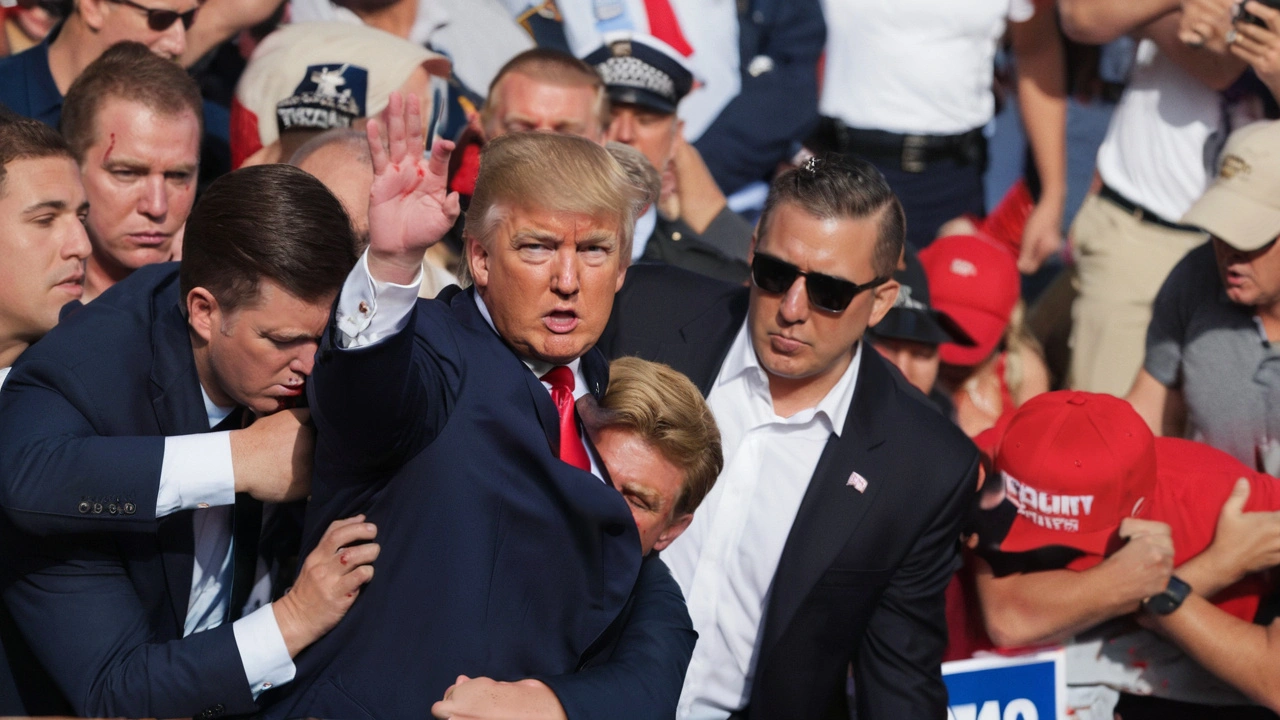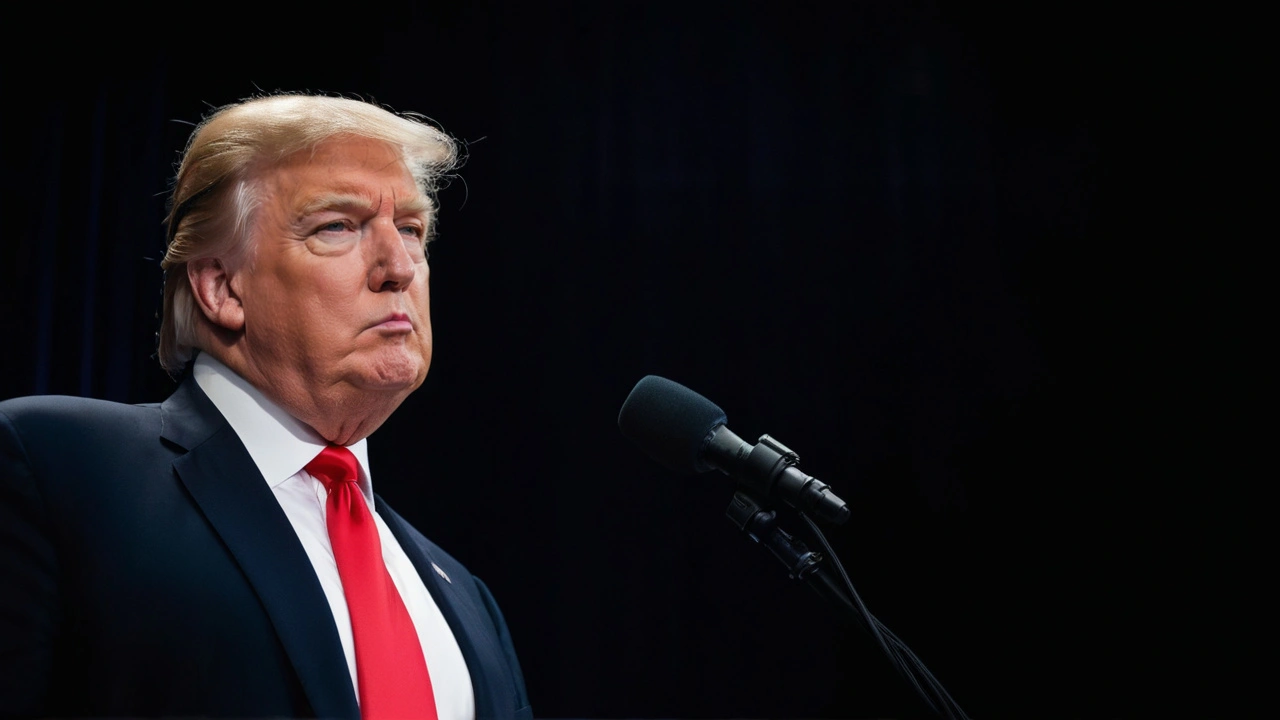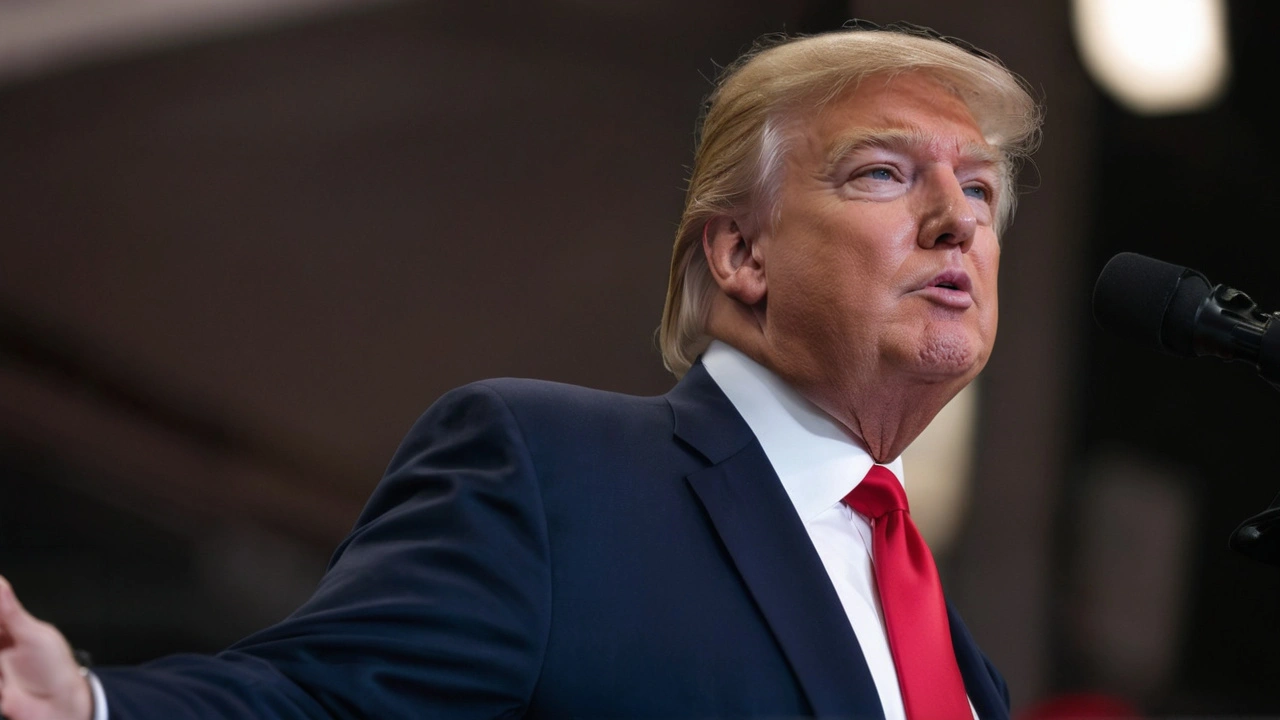Google's Omission of Trump Assassination Attempt in Search Results Sparks Outrage
The tech world has been thrown into controversy, once again, this time revolving around the perceived biased practices of Google's search engine. This latest storm kicked off following the events of July 13, when former President Donald Trump was the target of an unsuccessful assassination attempt. Internet users quickly discovered that Google's search results and autocomplete features failed to produce any relevant information about this harrowing incident, leading to widespread speculation and accusations.
The thrust of the allegation comes from Donald Trump Jr., who asserts that Google's actions—or lack thereof—amount to an intentional manipulation of search results aimed at influencing the outcome of the upcoming U.S. presidential elections. He argues that by stifling information about his father, Google is indirectly supporting Kamala Harris, another political figure seeking the presidency. This, according to critics, points to an unsettling bias within the tech giant.
Contradictory Results Raise Eyebrows
Screenshots and user testimonies from various parts of the globe have shown a peculiar pattern. While search suggestions for historical assassination attempts on figures like Ronald Reagan and Archduke Ferdinand populate Google’s autocomplete, there’s an eerie silence when it comes to the recent incident involving Donald Trump. The disparity has raised concerns about why a significant modern-day event would be conspicuously absent.
Google was quick to address the concerns with a firm rebuttal. The company stated that no manual modifications were made to suppress the search results about Donald Trump's assassination attempt. They emphasized that their algorithms and systems are designed with built-in safety measures to prevent autocomplete features from generating suggestions related to political violence. This, they noted, is a standard practice aimed at reducing the risk of inciting violence and avoiding the spread of harmful misinformation.

The Double Standards Debate
Despite Google’s explanations, detractors remain unconvinced. They point out the apparent inconsistency in Google's policy enforcement. The search giant’s systems seem to recognize and suggest information about other political violence incidents, leading to suspicions of double standards. This inconsistency is the fulcrum of the criticism, fueling allegations that Google’s approach is selective and partial, which has further amplified concerns about political bias and Big Tech’s role in shaping public opinion.
The conversation around Google's practices is not new. Over the years, the company has faced criticism from various quarters about its algorithms potentially favoring certain political narratives. The recurrent theme is the perceived lack of transparency in how search results are curated and how the autocomplete feature is managed. Skeptics argue that without clear visibility into these processes, it's challenging to dismiss claims of manipulation and bias outright.
Big Tech and Election Interference
The broader context also can't be ignored. As the U.S. gears up for another presidential election season, the role of Big Tech in electoral processes is under intense scrutiny. In recent years, the tech sector has been accused of wielding undue influence over public discourse, with platforms like Google, Facebook, and Twitter often dominating headlines for their impactful roles. This scrutiny is heightened by concerns about algorithmic transparency, data privacy, and the potential for these platforms to shape electoral outcomes through subtle nudges and information curation.
This incident with Google and the assassination attempt on Trump thus intersects with a growing debate about electoral integrity and the responsibilities of digital platforms. On one hand, there's the argument that tech giants must adhere to ethical guidelines to prevent the spread of misinformation and incite violence. On the other hand, there's an equally vehement call for neutrality and transparency in content moderation practices.

Public Reaction and Political Ramifications
Public reaction to the incident has been fervent, with opinions sharply divided along political lines. For supporters of Donald Trump, the omission is seen as a blatant example of partisan manipulation. They argue that such selective information control amounts to an infringement on free speech and an unfair interference in the democratic process. This cohort includes not just political enthusiasts, but also digital rights advocates who worry about the long-term implications of biased algorithmic governance.
Conversely, those aligned with opposing political views are more inclined to accept Google’s explanation at face value. They argue that automated systems are not infallible and that mistakes or inconsistencies do occur. From their perspective, the calls for bias and manipulation are exaggerated and part of a broader narrative to undermine trust in essential digital infrastructures.
Looking Forward
The controversy surrounding Google's handling of the Trump assassination attempt search results throws into sharp relief the complex intersection of technology, politics, and information. As digital platforms continue to play an increasingly pivotal role in shaping public dialogue, the need for transparent practices and clear ethical guidelines becomes ever more crucial. The debate raises important questions about accountability, the balance between safety and freedom of information, and the future of digital democracy.
Ultimately, the resolution of this and similar controversies may not lie in clear-cut answers but in continued dialogue and oversight. As users and stakeholders demand greater transparency and fairness, tech giants like Google will be compelled to evolve their practices to meet these expectations. Until then, incidents like these will continue to stoke the fires of debate, signaling a new era of scrutiny for digital platforms.

11 Comments
Krishna A
July 30 2024
lol google just deleted the whole event. next they'll say the moon landing was fake too.
Jaya Savannah
July 31 2024
so... google's algorithm is now a therapist? 🤔 it's like 'oh no, bad thoughts, let me hide those for your mental health'... but only if they're about *him*.
Sandhya Agrawal
August 1 2024
this isn't a glitch. it's a pattern. they did the same thing after 2020. they delete anything that makes the left look bad. you think they'd be this stupid if it wasn't intentional.
Vikas Yadav
August 1 2024
I think we need to step back here, and consider: algorithms are not sentient, they don't have motives, they don't hate anyone. The system is trained on data, and if the data doesn't flag it as high-risk for violence, it doesn't show up. It's not bias-it's a misfire. And yes, it should be fixed.
Amar Yasser
August 2 2024
look, i'm not into politics, but i did a search and it was wild not seeing anything. i get why they don't want to auto-suggest violent stuff, but if Reagan's attempt shows up and Trump's doesn't? that's just sloppy. fix the code, not the narrative.
Steven Gill
August 2 2024
i think we're all missing the real issue here. it's not about trump or harris-it's about who gets to decide what's 'dangerous' information. if the algorithm decides based on vague patterns, then we're letting a black box shape history. that's scarier than any politician.
Saurabh Shrivastav
August 4 2024
oh wow google finally found a way to be *more* cowardly than a politician during a debate. 'we don't want to promote violence'-sure, but you promoted the assassination of JFK's legacy by ignoring it for 60 years? nope, only when it's inconvenient. classic.
रमेश कुमार सिंह
August 4 2024
Think of it this way: the internet is a mirror, but Google holds the polish. Sometimes the mirror reflects what we fear. Sometimes it reflects what we want to forget. The silence here isn't neutral-it's a choice made by unseen hands. We must ask: who taught the machine to flinch at one name and not another? Is it the data? Or is it the dreamers behind the code, whispering into the wires? We are not just users-we are the ghosts haunting the algorithm.
Prince Chukwu
August 4 2024
bro this is like if your grandma deleted your birthday party pics because 'it was too emotional'-but kept every picture of your cousin's wedding. same camera, same memory card, same family... but only some things get to live. that's not safety. that's favoritism. and it's gonna bite us in the butt when the next big thing happens and no one remembers it because google decided it was 'too spicy'.
Divya Johari
August 4 2024
The assertion that algorithmic omission constitutes political bias is a fallacious conflation of technical imperfection with malicious intent. The system's design parameters are predicated upon harm mitigation, not ideological alignment. To ascribe agency or animus to a computational process is anthropomorphization of the highest order.
Aniket sharma
August 5 2024
everyone's mad but nobody's helping fix it. if you care about this, write to google, join a transparency group, demand open audits. yelling on reddit won't change the code. but showing up? that might.